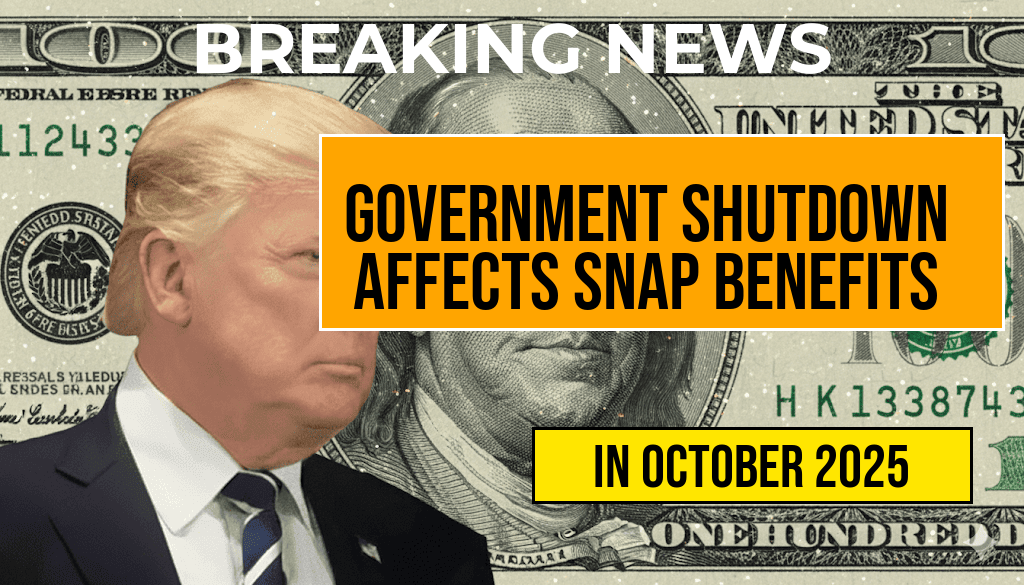The potential for a government shutdown raises significant concerns over its impact on Supplemental Nutrition Assistance Program (SNAP) benefits, commonly known as food stamps. When federal funding stalls, vital social safety net programs like SNAP often face operational disruptions, threatening the food security of millions of Americans. During past shutdowns, recipients have experienced delays, reduced benefits, or temporary suspensions, underscoring the vulnerability of these programs to political impasses. As negotiations continue in Congress, understanding how a shutdown could affect food stamp assistance is crucial for affected individuals, advocacy groups, and policymakers alike. This article explores the mechanisms of SNAP funding, historical precedents, potential consequences during a shutdown, and ongoing efforts to mitigate disruptions, providing a comprehensive overview of this critical issue.
How SNAP Benefits Are Funded and Distributed
Federal Funding Structure
The SNAP program is primarily funded through federal allocations authorized annually by Congress. The U.S. Department of Agriculture (USDA) oversees the program, disbursing funds to states, which then administer benefits to eligible individuals and families. Typically, the federal government allocates billions of dollars each year to support food assistance, with the funds covering the bulk of benefits paid out to recipients.
State Role and Administration
States play a crucial role in managing SNAP, including determining eligibility, issuing electronic benefit transfer (EBT) cards, and ensuring timely distribution. While federal funds are guaranteed for approved periods, states rely on consistent and timely federal disbursements to maintain operations. During government shutdowns, the flow of federal funds can be interrupted, directly affecting the ability of states to process and deliver benefits.
Historical Impact of Government Shutdowns on SNAP
Past Shutdowns and Their Effects
| Year | Duration | Impact on SNAP | Notable Outcomes |
|---|---|---|---|
| 2013 | 16 days | Delayed benefit issuance in some states | Increased food insecurity among vulnerable populations |
| 2018-2019 | 35 days | Disruptions in benefit distribution; some recipients faced shortages | Legal actions to prevent benefit reductions, but some delays persisted |
Lessons Learned
Historical shutdowns revealed that although some SNAP recipients continue to receive benefits through automatic funding provisions, others experience delays or reductions. The uncertainty exacerbates food insecurity, especially for households relying heavily on these benefits for daily sustenance. Recognizing these vulnerabilities, advocates have pressed for measures to ensure continuous support regardless of political gridlock.
Potential Consequences of a Government Shutdown on Food Assistance
Disruption of Benefit Payments
During a shutdown, the federal government often halts or delays the disbursement of SNAP funds. While some states have reserve funds or contingency plans, others may experience immediate disruptions. Recipients might see their benefits temporarily suspended or reduced, making it difficult to purchase adequate food supplies.
Increased Food Insecurity
Data from previous shutdowns indicate that families dependent on SNAP are particularly vulnerable during these periods. Reduced benefits or delays can force households to cut back on nutritious foods or skip meals, exacerbating health disparities and putting strain on local food banks and community organizations.
Administrative Challenges and State Responses
- States may implement emergency measures, such as issuing emergency benefits or extending benefit periods.
- Some may face administrative backlog, delaying processing times even after federal funding resumes.
- Legal debates often ensue over the extent of federal obligations and the rights of recipients to uninterrupted benefits.
Efforts to Protect SNAP During Political Stalemates
Legislative Measures and Automatic Funding
To mitigate the risk of disruptions, some lawmakers advocate for legislation that guarantees SNAP benefits during shutdowns through automatic funding mechanisms. These measures aim to prevent benefit lapses regardless of congressional appropriations delays.
Role of Advocacy Groups
Organizations such as Feeding America and the National WIC Association actively lobby for policies that safeguard food assistance programs. They also mobilize public awareness campaigns to highlight the consequences of funding lapses on vulnerable populations.
Federal Contingency Plans
The USDA has contingency plans in place to continue essential operations during shutdowns, but these are often limited in scope. The effectiveness of these plans varies, emphasizing the importance of political consensus to ensure uninterrupted support.
Additional Resources and References
- Wikipedia – Supplemental Nutrition Assistance Program
- Forbes – Impact of Government Shutdowns on Federal Benefits
- USDA – SNAP Operations During Shutdowns
Frequently Asked Questions
How does a government shutdown affect SNAP benefits?
A government shutdown can temporarily halt SNAP benefits issuance, potentially causing delays in payments to eligible recipients. However, some benefits may continue depending on current funding provisions and emergency measures.
Will I still receive food stamp assistance during a government shutdown?
In many cases, food stamp assistance benefits are protected for a certain period during a shutdown. Nonetheless, prolonged shutdowns might lead to disruptions or delays in benefit distribution.
What should I do if my SNAP benefits are delayed due to a shutdown?
If your SNAP benefits are delayed, contact your local Department of Social Services or the agency responsible for administering benefits. They can provide guidance and help you understand your options during the shutdown.
Are SNAP benefit recertifications affected by a government shutdown?
Yes, during a shutdown, recertification processes might be delayed or temporarily paused, which could impact ongoing eligibility and benefit renewal for SNAP recipients.
How can I prepare for potential disruptions in food assistance during a government shutdown?
It is advisable to stock up on non-perishable food items and plan for possible delays in SNAP benefits. Stay informed through official announcements from your local social services agencies for updates.






